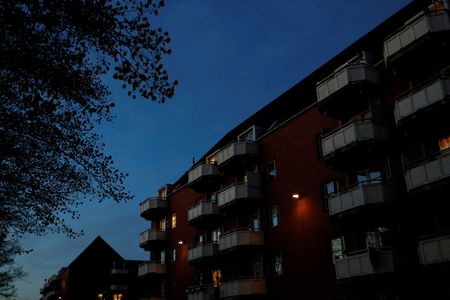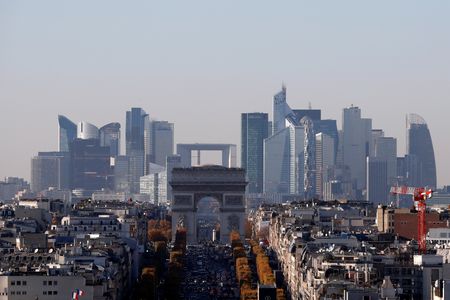By Louise Rasmussen and Isabelle Yr Carlsson
COPENHAGEN (Reuters) – Denmark’s policy of dispersing residents from neighbourhoods with large ethnic minority populations is discriminatory, an adviser to the European Union’s top court said on Thursday ahead of a ruling due in coming months.
The housing legislation in place since 2018 aims to further promote integration in a nation where migrants have had relative success with language proficiency and employment.
But its implementation – which has seen demolition of social housing units in the capital Copenhagen and elsewhere – has brought a backlash from some rights groups, those affected and the United Nations.
At the core of the European Court of Justice case is whether Denmark’s use of the term “ethnic origin” classifying the makeup of neighbourhoods, is racially discriminatory.
“The scheme that uses concepts such as ‘immigrants and their descendants from non-Western countries’ for the categorisation of a neighbourhood in which a number of public housing units is to be reduced must be interpreted as direct discrimination,” said ECJ adviser Tamara Carpeta, known as an advocate general.
Her opinion, which came in a statement from the court, is not binding but could influence a final ruling.
Eddie Khawaja, a lawyer for residents facing eviction from Copenhagen’s Mjolnerparken who launched a legal challenge in 2020, welcomed her view.
“I and my clients are just incredibly happy that the Advocate General agrees exactly with the way I and my clients see this case,” he said.
‘MEMORIES DISAPPEARED’
Muhammad Aslam, 58, chairman of Mjolnerparken’s housing association, was evicted under the housing dispersal policy with his wife and one of their four children in 2023.
“My four children were born and raised in the home we were evicted from,” he said. “All those memories just disappeared from one day to the next. And it’s not just our family, it’s also a lot of our neighbours.”
Aslam, who came to Denmark from Pakistan in 1975, has been rehoused twice.
“We are all included in the negative statistics because I was born in a non-Western country – my children, who were born and raised in Mjolnerparken in Denmark, and who are also Danish citizens,” he said.
Denmark designates a neighbourhood a “transformation area” if more than 50% of residents are non-Western immigrants or their descendants and where at least two other criteria on education, income, crime and workforce participation are met.
The law requires public housing associations to reduce the proportion of public housing units in the neighbourhoods to 40% by January 2030.
Denmark’s Minister of Social Affairs and Housing Sophie Hastorp Andersen pointed to the non-binding nature of the advocate general’s opinion.
“I will therefore await the final decision of the judges,” she said in a statement.
After the ECJ’s ruling, the case will return to a Danish court to determine its implementation.
(Reporting by Louise Breusch Rasmussen and Isabelle Yr Carlsson, editing by Essi Lehto, Terje Solsvik and Andrew Cawthorne)










